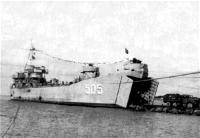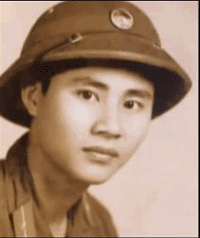Chapter 10
- “James, today you will start writing you declaration.”
- “I've written it many times already.”
- “To me, everything starts all over again.”
- “Where shall I begin?”
- “From your tenth birthday. That's all I ask you to do. I won't ask you to admit any war crime. How could you have started the war? To ask you for such a confession is quite illogical.”
- “Many investigators before you forced me to confess my war crimes.”
- “Forget that. After the war, everything has changed. I shall have the guards put a table in the corner of this room. You can write at that table. It will be completely quiet. If there isn't enough light, you can turn on that lamp. Pound on the door if you need anything. I shall give you enough Coke, cigarettes and matches. Here is a stack of thirty sheets that have been numbered. You can scratch out anything you have written, but you can't blot the words out so that we are unable to read them. You can't lose any of these pages. You have heard this instruction before, haven't you?”
- “Yes, I have.”
- “It's the same this time. This is a procedure everyone has to complete. Just like before becoming a US citizen, one has to complete a declaration of his past history. By the way, doing this is to prepare for resettlement in America. Do you understand?”
- “Yes, I do.”
- “That's good. Take your time, and don't forget any details. Write at your own pace, as sincerely as you can. At mealtime, the guard will take you back to your room.”
Chi Mai pushes a button. A few minutes later, two guards bring in a table and place it in a corner of the room. Chi Mai directs him to the table and leaves him there. She walks out of the room and doesn't forget to close the door.
"Take no thought, saying, What shall we eat? or What shall we drink?" James lights the cigarette and opens the can of Coca Cola. He begins to write after drinking half the Coke. James first answers the questions about his personal record. Then he continues by reflecting on his early childhood, his innocent first steps along the Rio Grande. Inspired with emotions, James writes about the most beautiful days of his life, when the warmth and love of his family surrounded him. He has an honest father, a kind mother, and two sweet sisters. His parents never quarreled with each other. They used to say gentle words and just talked about nice things and good people. James spent a wonderful childhood in that small town in Texas, where people went to church regularly. They greeted one another when they met in the streets. Life went on peacefully. All his neighbors were warm and good-hearted. Everybody enjoyed God's blessings. Adults constantly taught children to behave and do good. James is passionately writing down his magnificent childhood. He forgets that he is still in prison. James has the feeling he is a writer who is creating, just like Mark Twain with "The Adventures of Tom Sawyer," Marcel Proust with "A la Recherche du Temps Perdu," or Charles Dickens writing "David Copperfield." James suddenly remembers a famous quote from "The Karamazov Brothers" by Dostoievsky: "Nothing is more pristine and intense than one's childhood memories, when one lived happily with one's parents. When grown up, if a person remembers all those sacred memories, he will be completely saved. Even if he just remembers a few of those memories, he will still be saved". James remembers all the childhood memories. "Blessed are they that mourn: for they shall be comforted." James feels he has been comforted. Comfort comes at the most painful moment of his life. The cherished memories of the past return to him with their pristine beauty. James feels as though he could smell fragrance from the pages he has just written.
Lighting another cigarette, James enjoys both the flavor of the tobacco and the honey of reminiscence. He is absorbed in his writing. James is looking for the old elm tree at the foot of which he used to sit to listen to the twittering of birds. James is searching for the pieces of broken tile with which he used to play ducks and drakes on the lake. Here are the hills he was romping in springtime; there are the meadows in which he used to frolic during summer. This is the path he was wandering on the days of autumn; that is the road he was strolling on winter days. James has found the small river where he was choked with water during his first attempts to learn to swim. He has seen the woods where he once lost his way and was about to cry. Oh, how sweet this robin is singing! And how beautiful that butterfly looks! James describes the picturesque smoke rising from the kitchen of the farmhouse in the distance. He depicts the tender sunlight in the early morning, the childish attachment he felt towards his girlfriend in grade school, how he was escorting her home every day and how difficult it was for him to say goodbye. James Fisher writes passionately. He feels happy to relive his childhood memories. James doesn't feel hungry. But his inspiration is cut short. His captors know when the right time is. James is led back to his room. It seems he has already been nurtured by his memories. He doesn't feel like eating. Neither does he need a nap. James is anxious to continue writing. But the guard reminds him to finish his meal. After lunch, James lies on his bed, trying to remember if there is anything he has forgotten. Later in the afternoon, a guard takes him back to Chi Mai's office. She is waiting for him at her desk.
- “How many pages did you write this morning, James?”
- “Haven't you read it?”
- “No, but I will as soon as you finish.”
- “I wrote ten pages.”
- “Very good. As you haven't written for a long time, does your hand hurt?”
- “No. I was so excited I could go on writing all day.”
- “That's good, Your excitement shows you are sincere. We judge a person's thoughts by his actions. Your excitement is a sign of progress. You can use as much paper as you need. Tell me when you want more paper. Before you leave this afternoon, please put all the pages you've written into this folder.”
- “Yes, I'll do so.”
- “Now I'll let you continue writing. In case you need anything, please pound on the door.”
- “Thank you.”
She leaves the room. James lights a cigarette, and rereads all that he has written. James is very pleased. He can't believe his childhood was that magnificent. James has lived his early childhood to the fullest. He is grateful to these pages. They are the tickets for him to get on the train taking him back to his boyhood. Now James begins to write about his school. He writes about his teachers and his classmates. James can still remember the names of all his teachers. He describes the hard-working, quiet classmates and those who were naughty. He pictures vividly how they look, how they behave. James praises the summer in a Texan small town, with all the games that elementary students used to play. His lively boyhood was full of activities on the school playground and along the Rio Grande. James got as much inspiration to live from the Rio Grande as Mark Twain got his inspiration to write from the Mississippi.
Then James describes how he came to know the shy Susan McCareen, the lovely girl with the dimple in her cheek, how they got to know and love each other. He expresses his feeling about the first time they kissed. The feeling is still so strong that he cannot go on writing. He has to take a few hits off his cigarette before being able to continue writing about his love story. Susan came from a poor family. She was very much like the main female character in "Mamma's Bank Account" by Katherine Forbes. Susan's mother was a wonderful woman whose whole life was devoted to her husband and children. There is no class barrier in true love. Both his and her parents approved their love. They used to visit each other. The two families got to know each other and became close together in the warm, friendly setting of that small town. James describes and praises Susan's beauty and character. In those days, he had dreams of marrying her after graduation.
James writes about his lively days in college. He was selected to be on the basketball team. James soon became the idol of the youth in town. When he threw the ball into the basket, he almost never missed it. James remembers the many basketball tournaments he had participated in, and the trophies his team had won. His days in grade school, high school, and college were really golden, just like the summer sun shining on the Rio Grande.
Life would have been great for James if the Vietnam war had ended in 1971. In 1972, just out of college, he became a soldier because his country needed him. James promised Susan that they would get married as soon as he would return from the war. On his first mission over North Vietnam, a SAM 6 shot down his B52. Since then, for the past eight years, he has been moved from one cell to another so many times. James stops writing at the point his plane was shot down. He has used up the 30 sheets of paper. He reads and rereads what he has written. Then James puts the stack of paper into the folder. James sits there smoking and drinking the soft drink. He doesn't feel tired. For the first time, James feels well after writing the self-declaration paper. During the previous sessions, James used to write briefly because the investigator was sitting in front of him, ordering him to write what he thought must be written. It is completely different now. "Everything has changed, James. Let's forget the past," Chi Mai has told him so. James murmurs to himself: "Sufficient unto the day is the evil thereof." James believes in God. He knows his Lord will take care of him. He won't have anything to worry about.
Chi Mai opens the door and enters.
- “How many pages have you got, James?”
He replies,
- “I've used up all the paper you gave me.”
She looks astonished.
- “You've exceeded my expectation.”
He says,
- “I've written with all my inspiration.”
She smiles.
- “Then I may spend the whole night reading it.”
He asks,
- “Are you going to read it all night?”
She nods.
- “It's not much to spend the whole night reading someone's life story. I hope you won't have to rewrite it.”
Looking straight at him, she says,
- “No prisoners have written their self-declaration paper just one time.”
Chi Mai strokes the lock of hair over her forehead.
- “You can go back to your room now. Your fingers may hurt tonight.”
The guard takes him to his room. James takes a bath and has dinner. He lies on his bed, looking at the gloomy light bulb, thinking about the kingdom of heaven. "Blessed are those who are persecuted for righteousness' sake; for theirs is the kingdom of heaven." James thinks he should stop worrying about his days ahead. Chi Mai was right. The tip of his thumb and his index finger begin to hurt. As he hasn't written for a long time, it's common that they hurt, because he has written thirty pages. James feels surrounded by a complete peace. He is very happy now, for he no longer has to try hard to call back his memories. It seems as if his past and present have been merged into one. James knows that whenever he needs, these sweet memories will come right away to comfort him, helping him forget all the suffering of the present. He won't have anything to worry about tomorrow. “What will be, will be...”
James sleeps soundly like a child, that night.
(xem tiếp)--->
Gửi ý kiến của bạn




